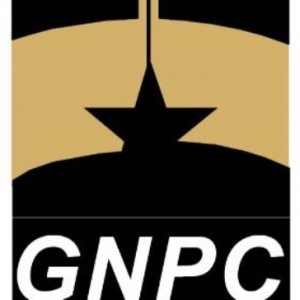Local gas market has significant potential to transform economy – GNPC
 The local gas market is relatively small, but has significant potential to transform the economy, Mr Hamis Usif, Manager, Gas Business, Ghana National Petroleum Corporation (GNPC), has said.
The local gas market is relatively small, but has significant potential to transform the economy, Mr Hamis Usif, Manager, Gas Business, Ghana National Petroleum Corporation (GNPC), has said.
He noted that, the local gas market is relatively stable with demand driven mainly by power demand and growing at 7.3 billion cubic feet per year (Bcf/Yr); adding that lower gas utilization was as a result of lower demand and inadequate infrastructure for its transportation.
Mr Usif made the revelations in his presentation at a Stakeholders Forum on Crude Oil and Natural Gas Marketing in Accra.
“New gas infrastructure like the reverse flow and Karpower relocation is expected to increase gas demand by about 120 Million standard cubic feet per day (MMsfcd) of gas,” he stated.
He said, gas availability and new infrastructure should support increase in traded gas and industrial demand.
The Forum, organized by the Public Interest and Accountability Committee (PIAC) with the support of the GNPC, was to educate and develop the capacity of stakeholders.
It was to afford participants the opportunity to discuss the extent to which the Ghana group and the international oil companies’ crude oil and gas marketing strategy affects realized prices and ultimately, accrued revenues.
It also provided a platform to share best practices on crude oil and natural gas marketing.
It aided key government agencies to acquire better understanding of the process of crude oil and natural gas marketing by both the GNPC and the international oil companies in order to assist them in their regulatory and revenue administration functions.
Mr Usif, who spoke on the topic “Gas Marketing – GNPC’s Experience and Lessons,” said Ghana’s oil and gas reserves as at December 2018, which includes Jubilee, Mahogany, Teak, TEN, Sankofa and Gye Nyame had total Crude Oil and Condensate Reserves of 743 Million Barrels of Oil (MMBO) and total Sales Gas Reserves of 1,025 Bcf.
With regards to pertinent issues on natural gas (NG), Mr Usif said Ghana’s basins are proving to be a lot more gaseous than originally envisaged.
He said the first priority use of NG in Ghana was to meet field operational requirements; stating that where contractor declares that a discovery was not commercial, GNPC might take over the discovery and develop the discovery if it had identified a market, through “sole risk”.
He said flaring was only allowed under strict conditions; whereas natural gas liquids (NGLs) and condensates might be extracted offshore and added to oil.
He said pricing for natural gas was influenced by the cost of development and the use to which the gas would be put.
On gas market development, Mr Usif said the GNPC, as gas aggregator would aggressively pursue non power demand targets to switch from liquid fuels to gas by entities such as breweries, food industry, iron and aluminum industries.
He said the corporation would catalyze development of city gate infrastructure in Tema to help in gas utilization.
He noted that the aggressive marketing initiatives of gas were projected to increased non-power demand for gas by 60MMsfcd in two years.
Other potential markets include fertilizer, compressed natural gas (CNG), gas to liquids (GTL), export as liquefied natural gas (LNG) or piped gas.
He said LNG imports could unlock gas utilization potential and explore gas export market through LNG trucks.
With regards to challenges facing the gas industry, Mr Usif said demand was limited and growth stunted; citing also infrastructure challenges, which was limiting gas utilization.
He said payment challenges from power sector impaired liquidity and undermine viability of gas sector.
Mr Usif said the lack of clarity in institutional roles such as the GNPC and the Ghana Gas, stating that sometimes there was an overlapping function.
Mr James McCullagh, Executive Director, CITAC Africa Limited said the ultimate thing in the crude oil trade was negotiations.
Dr Steve Manteaw, Chairman of the PIAC appealed to the Government to desist from using the nation’s petroleum resources as collateral for loans.
Source: GNA
